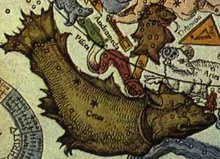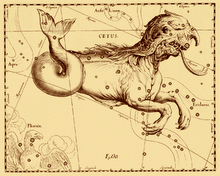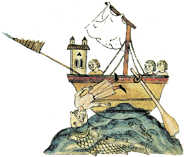The moment I knew that I should switch from being interested in "literature" and its construction to "history" and its construction was back in the late 90's. I had a friend that was very supportive and ran an institute on the Upper Westside. He told me then, while I was in my mid-twenties, that for an American I had a rather long view of history. I did not really understand his statement until I was teaching at the University of Cologne for a semester. The institution is 600 years old.
I have started to do the background reading for one of my two large projects. I am reading a history of Nashville written by Charles Elder (aptly named). It was published in 1890 and I have a beautiful facsimile of the book from the Bordeaux Library that is about 36 years old. The other is a history by Anita Shafer Goodstein entitled Nashville 1780-1860: From Frontier to City. Her volume was written in 1976 and is still fresh and relevant seeing that she was writing at a time when the concept of urban history or urban studies was just getting its footing. Goodstein is very aware of these "new" ideas and purposely uses this "newness" in a historical rendering of Nashville. I am grateful for her organization of material in introducing historical debates concerning Jacksonian Democracy, landownership and class formation in a very accessible way for those that are not familiar with Tennessee history. Or, as familiar as they should be with Tennessee history. I have noticed some very interesting things in both texts.
I guess it is the language. In the 1890 history the author writes a very personal account of the things that have made Nashville great which amount to a great list of names and chapters named "Municipal History", "Military History", "Manufacturing Industries" and "Transportation". I have not even gotten to the story of these founding fathers and lists of players in the passage of Nashville from a frontier outpost; to a functioning town; to a county seat; to a state capital; to a multi-layered district of different classes and occupations; to the confederacy; and, so on. For now, the cream is in the first two chapters. In his description of the landscape and the natural resources there is a hint of where a fiction could survive. I am learning how to talk like a 19th century judge -- post that seem to be held according to breeding and not education. His belief that there is enough coal in the hills to supply two or more generations. His 19th century optimism about the future. His 19th century syntax and word choice lacks inclusiveness, it is a statue for the future children of the state, his pages are cast iron gilded with gold. The world for him is the state of Tennessee, and all those that are honorable and hold the same office as him are great guardians of a planned utopian world. The Native Americans are mentioned in passing according to slaughters and defeated North Carolinian forts in what was then the wild west and is now my home state. Black folk are even less mentioned. Not that it is his fault, he was writing when that was the order of things, and in many ways it still is the order of things. There is a obscurity for the story of black folk in the South that scurries around a false sense of what the antebellum South was, and the desire to keep this narrative moving in motion pictures, unfortunately clouding our idea of a what a viable slave compound could have and would have looked like with the facts that are available to us. The fact is that Nashville rose from explorers and landgrabbers in 1780 and fell to the carpetbaggers by 1865. That is less than 100 years. And not all of that time was the time of Scarlet O'Hara and Terra. There was a lot of bloodletting, communities of Indians and forest to be tamed. The antebellum South was far from an eternal empire of lords, maidens and a fury of Negroes tacking fabric to busts and helping to mount gentlemen onto their stallions. And, the detail of that life is worth a second look I believe.
Am I being cliche? I was looking over another book on the Black Jacobins today, and I was wondering how many books concerning the "real" south have I had to read in my post-colonial studies course work. Am I post-colonial? Where does the Tennessee frontier fit in?
Naturally this is where Goodstein comes in and the Elder leaves off in 1890. Her language is more of a walk through archives to discuss exactly how corrupt and insider-trading-like the founders of Nashville were. James Robertson, the Blount brother, Andrew Jackson, John Overton and other names I have seen on high schools, roads and creeks are discussed here. In short, there is much blood and much land speculation. There is a silent introduction of slaves into the land. Very few records exist discussing the 100,000 people and their migration through the Cumberland Gap to the lands of Tennessee and Kentucky. According to Goodstein the Donelsons were the only family rich enough to bring a large number of slaves at first. That sentence was fascinating. But, the sentence that really got me twirling around in circles was: "Hagar, a black child fell from her perch behind Mrs. Robertson on a horse as the pioneers fled from Freeland's Station to the bluff." This sentence is only one of a few statements that name slaves during the pioneer period. And in my mind you might as well as sprinkled brown sugar on a gaping wound. It conjures up a lot of questions about what might have happened to Hagar. And what was the attachment of Mrs. Robertson to this little girl? What was that second like, and where did the following hours lead them? And most importantly, how did Hagar, a 4-year-old girl of African descent get herself all the way through time and space to the woods of Tennessee? There are other phantom coloreds and questions to ponder too.
Jack Civil was a freeman of color captured in 1780 at Clover Bottom by Indians. His son was also taken prisoner. There is more to the story in terms of how and where he pops up in historical documents; and, the situation of his social status among the pioneers does prove controversial in his rendering by other Southerners. But, something about that image, of Civil being black and kidnapped by Indian opens a fissure in my head. We talk about blacks "being mixed with Indian", but what about those that died in Indian raids. What about those that were loyal to their masters? What about those whose status as slaves were higher than the little white landless workers around them?
Then there is Sherwood Brian who became the richest free Negro in the state by 1850. His holdings included real-estate in Davidson county totaling $15,000 and 22 slaves. There were free laborers and slaves that rented out labor with great ease from their compliant masters. All of these amazing currents seemed to be bubbling up to the mid-1800's. Then something happened. Freedom and ideas concerning blacks soured. I will report on that later, I have not gotten to that part yet.
In the New World context, there is something to be said about slavery and its comfort levels in different places. Some blacks were willing to tolerate discomfort in order to pay for freedom, or to create a community of drifting men, women and children that could be re-assigned in an afternoon. I think I am coming to the conclusion that some black folk were all right with where they were (the book of the black confederates that I am reading is changing my view of the antebellum world). That, in the great order of things, was how whites and blacks were functioning. Did it mean that slaves did not have an understanding of the political problems that were around them? I don't think so. Even whites understood what the situation was, but to me there was something leaving people powerless to breakdown the construction of servitude in light of the constitution and the enlightenment. It is something that smells like mob violence. It is something that smells like pulpits. But in the end, for all the traveling and reading and acclimation to different environments that I have gone through, I have never looked at Tennessee as deeply as I am now. This project is needed. It is coming at the right time for me.
What happens next in this history?
I am not sure.
I have to keep reading.
And I will tell you more.
Thursday, February 23, 2006
Subscribe to:
Post Comments (Atom)







No comments:
Post a Comment